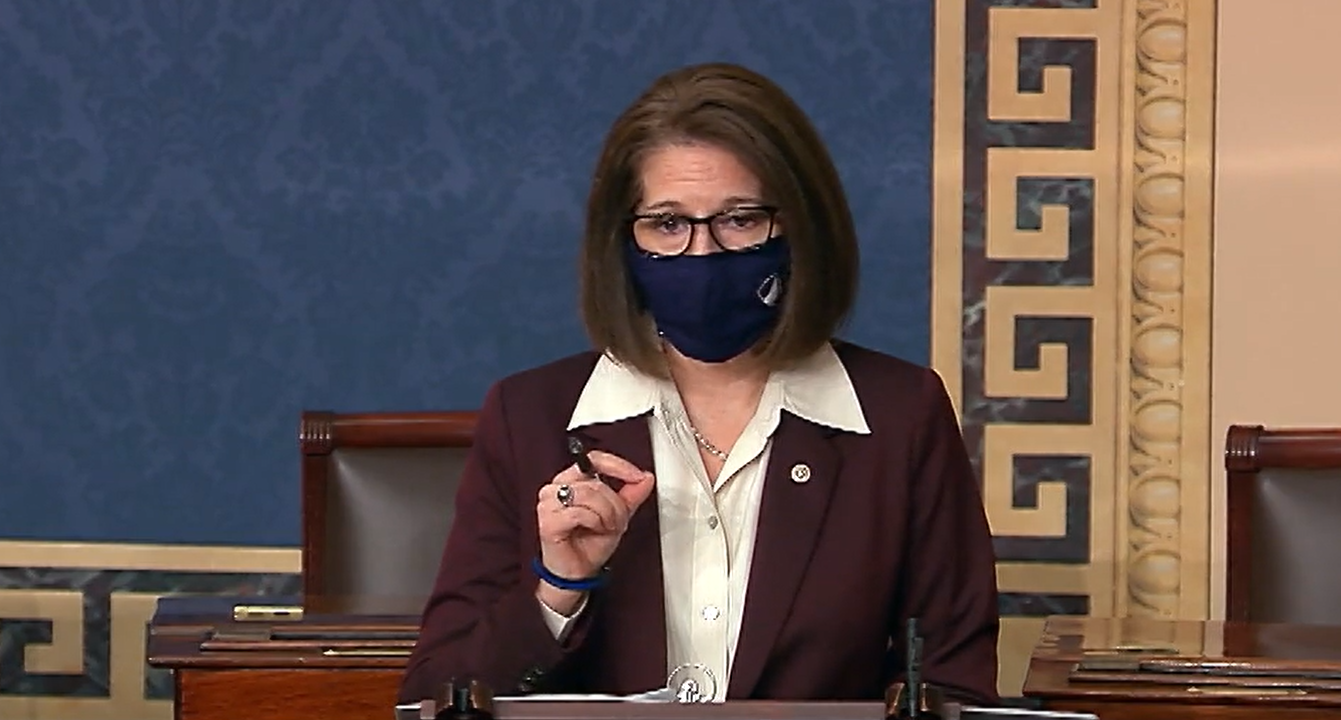Washington, D.C. – U.S. Senator Catherine Cortez Masto (D-Nev.) spoke on the Senate floor today about the importance of doing more to support Nevada’s Tribes and tribal communities in upcoming COVID-19 relief legislation.
Senator Cortez Masto’s remarks are available in VIDEO FORMAT. Below are her remarks as prepared for delivery:
I rise to join my colleagues in urging more help for Native American communities.
In Nevada, as across the country, our Tribes are hurting. They’re trying to do too much with far, far too little.
Some of them are still under lockdown, desperate to protect elders—often the gatekeepers of rich Native languages and cultures—from the impact of the virus. Many are struggling to keep businesses’ doors open. All of them are stretched too thin.
Sadly, this isn’t new. Tribes were suffering from unstable funding streams and budget shortfalls even before the coronavirus pandemic affected their economies.
Now, on shoestring budgets—with staffing levels that were insufficient even before the pandemic hit—they’re trying to address the myriad urgent needs of their communities.
That means administering COVID-19 testing and getting vaccines into arms, all while providing a whole range of other critical health care services like behavioral health care and primary care.
It also means administering affordable housing programs, supporting tribal businesses, and ensuring the safety of students and teachers in Native communities. The needs are immense.
Coronavirus relief for Nevada and the nation’s Tribes has to address the disparities that have made Natives up to 3.5 times more likely to contract COVID-19, and it has to make sure Tribes can build back economically after the pandemic ends.
To do this, we have to start by replenishing the Coronavirus Relief Fund, the Education Stabilization Fund, and the Homeowner’s Assistance fund, all of which have been providing valuable lifelines to Native communities impacted by COVID-19.
The federal government absolutely has to do more to support these efforts and uphold the Federal Trust Responsibility. It can help tribes navigate the federal bureaucracy and ensure that funds allocated to tribal priorities actually get into the hands of those who need them.
Congress also needs to make sure we’re meeting our treaty obligations to provide health care for American Indians and Alaska Natives, even when they live in urban areas rather than on tribal lands.
We can start by passing the Urban Indian Health Parity Act, which I’ve cosponsored, to shore up Medicaid funding for urban Indian Health care facilities and put them on a level playing field with Indian Health Services run by the federal government or tribes on reservations.
Looking forward, we also must do much more to permanently and robustly fund the Indian Health Service. This pandemic has only shown the risks of underinvesting in public health in Native communities, and we have to make sure IHS is able to prepare for emergencies like this one far better in future.
Leaving American Indian and Alaskan Native communities without sustainable funding streams for the health services that they were guaranteed by this government is a violation of our treaty obligations, plain and simple.
I support every resource we can get for Nevada’s hard-hit Native communities. Thank you.
###
